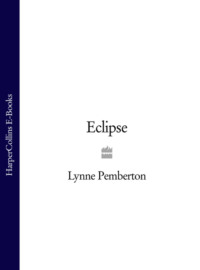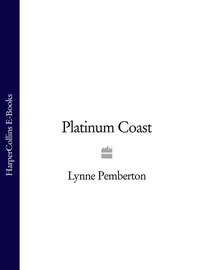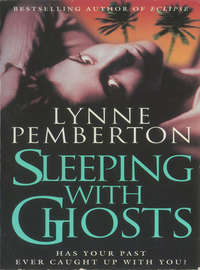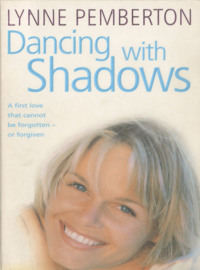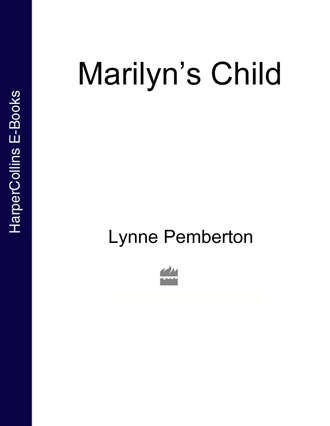
Полная версия
Marilyn’s Child
This did not put me off him; on the contrary, I found it endearing. It meant he was a man, a real flesh, blood and guts person, not a sanctimonious holier-than-thou super-being. He had faults and weaknesses just like the rest of us. It made him more acceptable and, to me, more accessible.
I never mentioned the telephone conversation to anyone, not even Bridget, but I did think about it a lot, often wondering what the woman called Siân was like. I built up an image of a tall, beautiful creature who had been, or was still, Father Steele’s lover. The thought made me feel odd, sort of possessive, sick-in-the-pit-of-my-stomach odd. A bit like the way I’d felt when, a few months before, Bridget had become overly friendly with a new girl called Magda who had been sent to the orphanage to have her baby.
Now the portrait is finally finished. My right hand, holding the edge of the canvas cover, is trembling.
‘Come on, Kate, what are you waiting for?’
‘I’m afraid.’
He takes a step closer to me and the concealed portrait. ‘Of what?’
‘Of you not liking it,’ I say, giving the cloth a sharp tug to reveal what is in my opinion the finest piece of work I’ve painted in my life so far.
It’s my creation and I’ve seen it every day, sometimes for four hours at a stretch, yet today Father Steele’s portrait looks like it has never looked before, and in that split second I understand what I’ve done. I’ve captured the soul of the man. It is more real than the real thing standing in dazed wonderment in front of his own image.
Neither of us speaks and I’m aware of an unearthly hush. After a few minutes I hear him let out a long breath, like when the doctor asks you to breathe in and out. The anticipation and the urge to pee are killing me. I cross my legs and squeeze my vagina tight. Lizzy had taught me how to do it when I’d almost wet myself waiting until the end of class to go to the toilet.
‘It’s not often I’m stuck for words, Kate, but right now, I’m ashamed to admit I don’t know what to say.’
‘Just tell me if you like it, yes or no,’ I demand sharply, my need to know far greater than any fear of risking his wrath for speaking disrespectfully.
He moves towards the painting; when his nose is almost touching the tip of the painted version he says, ‘The likeness is quite incredible.’
I’m losing patience. ‘Do you like it?’
‘Yes,’ he says, turning to face me. ‘Very much.’
I swallow the thick swelling in my throat and feel an overwhelming surge of satisfaction.
‘Good. That’s all I wanted to know.’ I drag my eyes from the still image to the real thing. His gaze is glassy and, unlike his portrait, his generous mouth is taut. My arm, as if being motivated by some outside force, moves from my side towards his face. I long to touch him, to seal this special moment with physical contact. I know it’s wrong, but I can’t help wanting his mouth to relax and his lips to touch mine. I imagine his breath warming my face, of tasting it while it fills my mouth. I start as he grips my wrist, stopping my advancing arm in mid-air. We stay like that for a few quiet moments before the spell is broken and he replaces my arm by my side.
‘Father O’Neill is right. You have great talent, Kate. Don’t waste it.’
‘I don’t intend to, Father. I’m going places.’ I press the flat of my hand to my stomach. ‘I feel it in here, deep inside. Do you ever have those feelings, Father, like you know what’s going to happen for sure but can’t explain how or why you’re so certain?’
‘It’s called perception, Kate, or instinct. And, yes, I do feel instinctive sometimes.’
‘Does it always come true?’
‘Nearly always, and I’d say if you feel very instinctive about something or someone, don’t let go.’
I’m secretly pleased he’s told me about the instinct thing because it confirms everything I’ve ever felt about Father Steele. I want to tell him how certain I am and have been since the day I first met him that one day he’ll be mine. But I hold back. There’s a time and a place for everything, so Lizzy’s ma always says, and she’s right. My instinct kicks in again. It’ll keep – I’ll keep – until the right moment arises, and I know deep in my heart it will.
The portrait of Father Steele never appeared in the church fête. A few people asked why and I told them the truth. The curate had loved it so much he’d wanted to keep it himself.
I recall my heart sinking as Father O’Neill approached me before Sunday Mass a week after Father Steele had seen his portrait. He’d come straight to the point, his voice barely containing his frustration.
‘Father Steele wants to keep his portrait. He’s made a good deal of fuss over not wanting to part with it, even offered to pay for it. I can’t say I’m not disappointed – I was looking forward to raising a good bit of money for the painting at the fête. Remember, last year your work caused quite a stir and the local press picked it up – all good publicity for the church. Friday Wells, as you probably know, is not a wealthy parish. I’ve had all this out with Father Steele but he’s adamant to the point of being downright stubborn.’
I’d no idea why Father O’Neill was confiding in me like this, and I found it difficult to contain my shock.
‘But, being a fair man, I’d feel downright churlish if I refuse. Now, if you, the artist, were to say it had to be the raffle prize for the church fête, well, that might present a totally different story.’ The priest scratched his head, leaving a hole in his sparse hair where his finger had been. ‘If I’m honest, I can understand why he wants to keep it. Grand likeness and perfectly executed. Sure, one of your ancestors must have been an artist.’
I felt a tug in my chest for all the times I’d wondered the same thing. Would I ever know who I was? Or was I destined to
.spend the rest of my life scarred with question marks? I knew Bridget felt the same as I did, but had, with her enviable complacency, accepted her lot. On numerous occasions she’d tried to convince me that digging for my past would create a hole so deep I might never be able to fill it.
Father O’Neill lowered his head. Two identical hairs poke out of each nostril and as he speaks they move simultaneously. ‘You painted the portrait for the church, Kate; what do you think about the curate keeping it for himself?’
It was the first time in my life an adult had asked for my outright opinion, on any subject, and to come from the lips of a priest, a ferocious terrifying man of God, was the last thing I would have expected. I racked my brain for something non-committal. ‘If Father Steele wants the painting that much, I’m sure he’s got good reason. We know you are a generous man, Father, and I think it would be very kind of you to give it to the curate.’
For a long moment he was silent, then, puffing out his chest and looking for all the world like a huge carrot-topped pouter pigeon, Father O’Neill said, ‘I’ve decided the curate must have his portrait.’ Then he slapped me on the back between my shoulder blades, winding me and making me splutter. ‘It’s a grand portrait, incredible likeness. You’ve got a rare talent, Kate. That’s for sure.’
Catching my breath, I said, ‘Thank you, Father. Soon I’ll have more time to concentrate on my painting. I’ll be sixteen next week, time to leave the orphanage.’
‘How time flies. I remember you when I first came to the parish. You were no bigger than –’ he holds his hand out level with my waist – ‘this, and with a head of golden hair the like of which I’d never seen before, except in films. Sure, you were and are a beautiful child. I recall saying to Mother Peter, “She’s like an angel, that one.”’ He chuckled. ‘Mother Peter nodded, all knowing like, and said, “Not an Irish angel, to be sure.’”
I put on my best innocent smile. ‘It would make me very happy for the curate to keep his portrait. If I had time, I’d paint another for the fête, Father.’
‘Perhaps you could find the time, young Kate, to dash off a quick drawing of the church, or the village?’
The fête was next Saturday, less than a week away. I had no time but could make time. ‘If you were to speak to the good sisters about my chores, Father, then I might be able to dash off more than a drawing of the church – a watercolour, perhaps?’
The priest’s eyes twinkled mischievously and to my surprise he grinned, suddenly boyish, and said in a conspiratorial whisper, ‘Consider it done.’
Father O’Neill is true to his word and the following few days after school I arm myself with a pad and pencils and scurry to the churchyard. Perched on a stool, I sketch the Norman church. St Winifred’s in Friday Wells is no grand edifice, yet to avoid criticism by the entire village I feel compelled to give the building some elegance and dignity.
I draw the stone columns rising either side of the arched entrance taller. I labour over clouds, like fake Santa Claus beards stuck to the towering spire, and I marvel at the way the cut-glass windows above the nave catch the light in a kaleidoscope of purple and green. For hours I mix and re-mix colour to get the exact shade. I paint until my hand and wrist ache and the light fades from sallow dusk to inky black. Most nights I miss supper; thank God for Bridget, who one night saved me half a slice of dry bread and a chunk of cheese, and another managed to nick a hard-boiled egg.
Late Friday afternoon, the day before the fête, the painting is complete. It isn’t a patch on Father Steele’s portrait, but I’m positive Father O’Neill will be pleased, and I’m certain it will fetch what the priest calls a pretty penny. Perhaps, I speculate, more than the portrait. After all, a portrait of a priest is not everyone’s cup of tea. Sure, most of the folk around Friday Wells would much rather hang a painting of the parish church than the parish curate looking for all the world like a film star in the role of a priest. Small-minded people, I conclude, and hypocrites: they say one thing and mean another. Fear, that’s what it’s all about. They are afraid of what other people might say or think. Why should it matter what others think? I ask myself. Recently I’d had this conversation with Mr Molloy, who had, I sensed with the perception thing, a different kind of attitude. He was always reading: books with unusual titles, books on philosophy, he called it. He’d encouraged me to read, lent me books, saying I had a bright enquiring mind. I loved reading, and enjoyed the discussion Mr Molloy insisted on after I’d finished a book. The ‘post mortem’, he called it. ‘Reading’, he said, ‘gives you an insight into the human condition, and with that knowledge comes greater understanding.’
Even without books I do understand some things. I know for certain some people need to believe in something, anything, and the church fulfils that role. If you believe in God and everything he stands for, then you don’t have to face yourself and who you really are.
‘It’s very good, Kate.’
The voice is behind me and without turning I say, ‘Not in the same street as your portrait, Father.’
‘Perhaps for some being in a different street is better.’
I nod, then screw my neck around to face him. ‘You’re right. I was thinking about just that a few minutes ago. I believe the folk around here will be more comfortable with a painting of the parish church hanging over the mantelpiece than a portrait of a film-star curate.’
He inclines his head, but not before I’ve seen his cheeks turn crimson. I stand and begin packing my things into the cheap PVC bag, thinking, not for the first time, how much I’d love a proper art portfolio in soft brown leather with two long carrying handles and shiny buckles, exactly like the one Gabriel Ryan’s parents had bought him for his fifteenth birthday.
‘Can I walk you to the end of the lane, Kate? There’s something I wish to say to you.’
It’s my turn to blush. I mumble, ‘Of course.’
It’s unusually warm for June, and dry. There has been no rain for ten days, a phenomenon in Ireland. Yesterday I heard a girl at school say the weather was as hot as Spain, she knew because she’d been there twice to stay with her grandparents. Spain seems a million miles from Friday Wells even on a humid evening like this one. I wonder if the sky in Spain is the same as the one above our heads. Shades of indigo streaked with gold stretch beyond dour rooftops, above tall yellow grass clumped below charred hills smudged against the horizon. A plane unzips the sky and I try to imagine how it must feel to be flying through the air on the huge mechanical bird.
‘Have you been in an aeroplane, Father?’
‘Yes, several times.’
Still gazing at the retreating aircraft, I ask, ‘Where to?’
‘Italy, South America and England.’
‘For holidays?’
‘No, working. I lived in a monastery in Italy, in the most beautiful part of the world – a place called Umbria, and in Spain I worked in a small parish in Andalusia.’
‘Do you speak Italian?’
‘Yes, fluently, and Spanish. At one time I wanted to live in Italy.’
‘What stopped you?’
His upper lip tightens. ‘My mother died. I came back to Ireland and stayed.’
‘I’m sorry.’ Then: ‘We have something in common – we’re both orphans.’
‘Yes, Kate, but I know who I am and where I came from. It makes us very different.’
We fall silent, a comfortable silence, the type friends share. It warms me. Side by side we walk down Potter Lane. Before we reach the end, Father Steele stops walking. As he turns to face me I stop and look directly into his eyes.
‘I want to explain about the portrait.’
With a perplexed look I ask, ‘Why didn’t you ask me if you could keep it?’
His hands open as if holding a book. ‘I can offer no excuse except to say I was embarrassed. When I saw the painting for the first time, I was surprised … No, more than that, I was shocked to the core.’ He pauses. I open my mouth to speak but close it when he continues: ‘What I saw in your interpretation of me wasn’t what I wanted to see. During the sittings I tried very hard to adopt a reverend air, an expression of goodness and serenity. But you cut through all of that, stripped the priest bare and found the man. That’s why I want the portrait. It’s not about ego or vanity, it’s about my calling, my dedication and my commitment. I desperately want to do the right thing, to be a good priest. You see, Kate, every time I look at the portrait it will awaken memories of the man I was, and still am sometimes, and the priest I want to become. Does that make any sense, Kate? I know you’re still a child but …’
My voice rises. ‘I’m not a child!’ Then it drops: ‘I’m sixteen next week. I’m a woman, and, yes, it makes sense. What I think you mean is we all have different faces, and some people are not always what they seem.’
My thoughts stray to Mother Thomas, who could, when she chose, be the kindest and most considerate person in the world. That was the face she wore to hide the evil, her dark side.
His deep mouth parts and he sighs. ‘You are without doubt a beautiful young woman with enormous potential, but, forgive me for saying this, Kate, you’re still an innocent. The orphanage, I’m sure, has taught you how to use your wits and every resource to survive, and you have a strong will and driving force that’s going, I have no doubt, to take you far. Yet you are still a lamb with no knowledge of the world outside this sleepy village. I can help you, Kate.’
My eyes widen quizzically. ‘I don’t understand.’
‘Biddy Flanaghan is leaving to have a baby. Why don’t you take her place in the cottage? It’s not hard work – only me to look after and I’m not too messy, I promise. I can afford to pay you eight pounds a week, all found. Not a fortune, I know, but it’ll help out when you get to Dublin. I know you can’t wait to leave Friday Wells, but look on it as a stop gap for a few months before you go to art college.’
He senses my hesitation and rushes on. ‘If you’d like to learn, I’ll teach you Italian and Spanish and some knowledge of the world outside this parish, if in return you promise to give me painting lessons. Ever since living in Italy I’ve longed to paint. Will you think about it, Kate?’
I nod. ‘When do you need me to let you know?’
‘As soon as possible.’
He was right, I did need the money. I had a student grant but the extra money would come in handy for canvas and paints. It was only for a short while and it would give me an opportunity to get to know Father Steele better. I weigh all of this against my desperate craving to get out of Friday Wells.
I make a snap decision. ‘I’ll do it, Father, until the end of September. College starts the twelfth of October – that gives me a couple of weeks to settle on campus.’
He’s smiling and I know I’ve made him happy. I find myself smiling too. I had a lot to smile about. I was leaving the orphanage, going to art college, and Father Steele obviously liked me – he was even willing to give up his free time to teach me the ways of the world. He cared. God for once had listened to my pleas. Sometimes God was good.
I’d expected to feel different. Yet I feel the same as I did yesterday and the day before. I’d dreamt of this day for such a long time, how could it cheat me this way? Being sixteen meant freedom, so why didn’t I feel free? And why this heavy feeling in the pit of my belly, like I’ve swallowed a lump of lead? My hand under the covers slides across my groin; it aches just above my pubic bone. It’s June 2, too early for my period. Perhaps I’ve got a temperature. With my other hand I touch my forehead: it’s cool. I’ve felt like this a couple of times before, once after eating too much pudding at Lizzy’s house, and the time I try not to think about too much, when a couple of years ago Mother Paul punched me in the stomach. That had hurt a lot and I’d cried a lot, but not in front of her. At the sound of coughing, I swivel my eyes right. Christine Donovan has the worst cough I’ve heard since Theresa Doyle died. Her nose scabs and she makes it worse by picking at the scabs until they bleed. Bridget reckons she’s got bronchitis, but Mother Thomas won’t have it. ‘Nothing that a bit of Vick and cough medicine won’t sort out.’ The nun’s been saying that for the last six weeks; it’s not sorting it out, in fact it’s worse. Some nights her tubes rattle so much I think I’m on a railway siding. I can’t watch as she hacks then spits into a metal dish on the floor, but I can hear and I feel sick.
I’m sorry for her, we all are, but I wish she slept somewhere else. In that instant I remember I’ll be sleeping somewhere else very soon. Tonight. With both arms I pull myself into a sitting position, my legs sprawled wide. My mouth is dry, as are my lips. I run my tongue over the top lip and bite a piece of loose skin from the bottom. It’s early, very early, about six a.m. I yawn, glancing up and right to the window above my bed. Idly I watch a bird land on the windowsill; it pecks at the glass for a few seconds before hopping along the sill. I think it’s a thrush but I’m not certain. I turn over, the bed creaks and the bird, startled by the sound, takes flight. I close my eyes tight and think of where I’ll be tonight, and the ache in my belly starts to ease.
I’m going to be with him, in his house, just the two of us. The thought fills me with joy and just a tiny frisson of fear. Afraid of being alone with the curate? I ponder the question then dismiss it as silly and childish. The curate is a good man, I tell myself, his outburst over the broken vase an isolated incident.
I believe, rightly or wrongly, that Father Steele and I have formed a friendship, a bond. After the initial portrait sitting when the cat had given me back my tongue we’d talked a lot. He’d talked about his family, mostly his da, who he’d had a very close relationship with. I recall the pride in his voice when he’d talked of his father working all his life in the shipyards, till at forty he got to be foreman, the proudest day of his life. ‘God-fearing and honest, salt of the earth, my Dad,’ he’d said. ‘Allowed himself one Woodbine and a pint of Guinness a night. Said he’d seen too many good Irishmen go bad with the drink.
“‘Aye, there’s a great big wide world out there, Declan,” he’d say. “Way past Dublin and Ireland even. It’s out there for the taking, lad.’”
The priest was interested in me, I knew by the amount of questions he asked. No one had ever shown so much interest in me and I’d found myself responding to him in a way I’d never done before. He made me feel special and grown up. I think for my part I made him laugh a lot, and once he said I was like a breath of fresh air.
Since meeting Father Steele I’d thought about God a lot. Perhaps getting the job with the curate was the work of the Lord. Could He, who had for so long overlooked me, have had a hand in this twist of fate, I ask myself. Perhaps I wasn’t all bad, as the nuns would have me believe. I’m not, I have never been, convinced I was truly bad – deep inside that is. Mischievous, yes; cheeky, or lippy as Mother Thomas said; and I’ll give them wilful sometimes, but evil, never. Is locking Mother Paul in the lavvy and hiding the key evil? Or creeping downstairs with Bridget on a Thursday night after the weekly grocery delivery to ease the ache in our howling bellies? It had been my idea to shave thin slices off the cheese and corned beef then re-wrap it, and then water down the milk. We’d got away with it for five weeks until Bridget dropped a milk bottle. It had shattered into hundreds of tiny pieces on the stone floor and Mother Paul had caught us red-handed, desperately trying to clean up. I don’t want to think about what happened later – not today, not on my birthday.
Sliding my legs from under the cover, I let them dangle from the side of the bed. My toenails are dirty and the soles of my feet hard with a thick scaly layer of dead skin. This makes me think about a hot bath, with bubbles and deep water right up to my chin. My feet are long and slender, I take a size eight. Bridget, who is a tiny four and a half, always says they are too big for my body. I’m five feet eight and most of that height in my legs, so I’ve always thought my feet match my legs.
I’m the tallest girl in my class, and by far the tallest in the orphanage. I don’t look like any of the other girls from the village. I suppose it’s because I don’t look Irish. I recall Father O’Neill’s words when repeating what Mother Peter had said: ‘Not an Irish angel.’ I make a silent promise to ask her about that. For a start (as a rule) the Irish have different skin to me, very different: pink and freckled, and they rarely tan. At the first sight of the sun my skin turns a golden brown. Nor are they (again as a rule) tall and willowy, with hair the colour of a tropical beach and eyes that can be grey or blue depending on the light.
In the past I’d often wondered if the way I look had made some of the local villagers treat me with what I felt was a sort of suspicion. They often whispered behind their hands as I passed; some of the women looked at me with blatant disapproval; and lately I’d seen the odd look in the eyes of some of the men. Bridget said it was the eye of lust. They wanted to poke inside my knickers. From a very young age I’d decided that the only man to enter my secret place would have to love me, a lot, and be prepared to show me just how much he cared. If he didn’t come along then I wouldn’t settle for second best. I’d be celibate. I’d learnt the word last week when reading a magazine piece on feminism. I’d have my work and surround myself with friends and like-minded people. Then I wouldn’t need the sex thing at all.
Idly I wonder how people will react when they find out I’m to be living and working for the curate. Ha, the news will get the tongues wagging.
I brighten at the thought of that and of Mary O’Shea’s anger. Rumour had it she’d wanted her own daughter Marjorie to get the job. Marjorie who has carthorse legs, black hair on her upper lip and on her stomach (according to Lizzy Molloy) and a distinctly fishy body smell. How anyone would even consider putting mangy Marj in the same space as the divine curate is beyond me. She’d best stay with her monster mother; at least then there wouldn’t be two houses spoilt.


